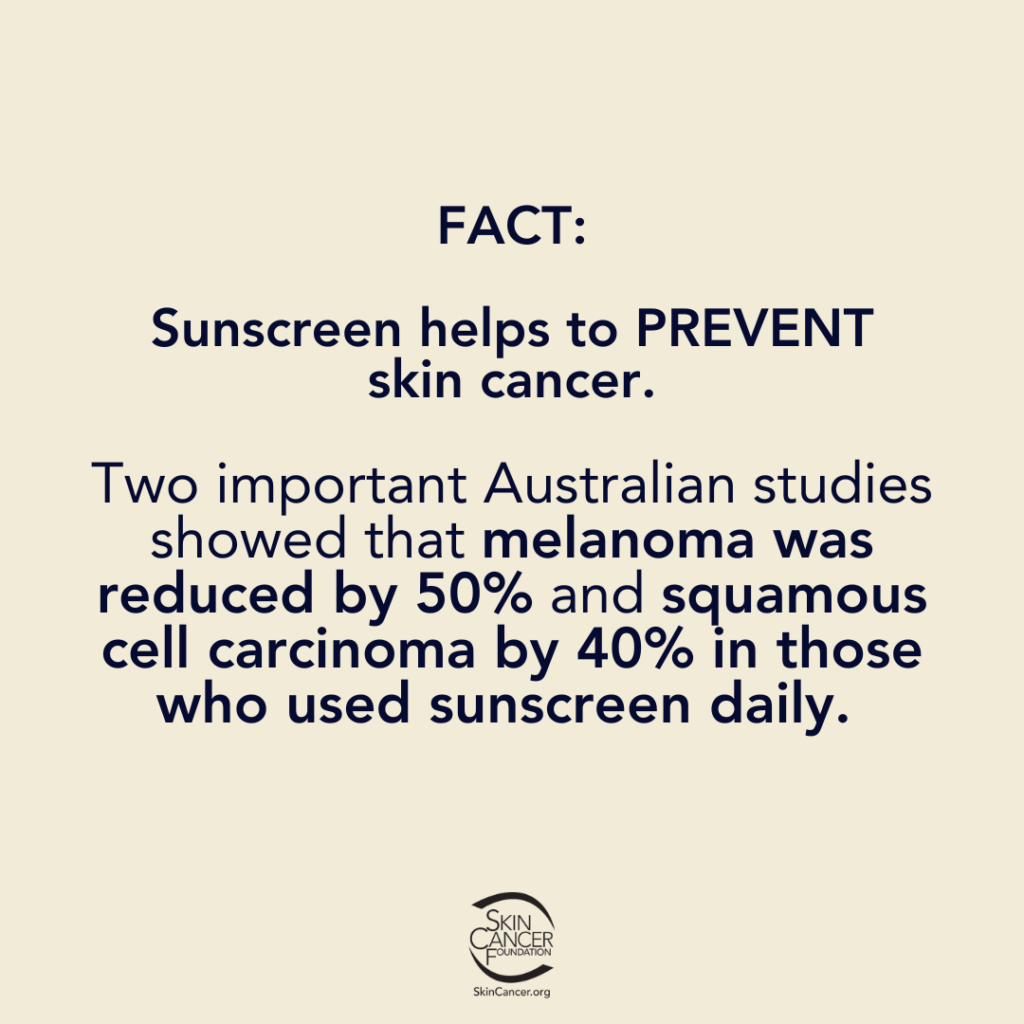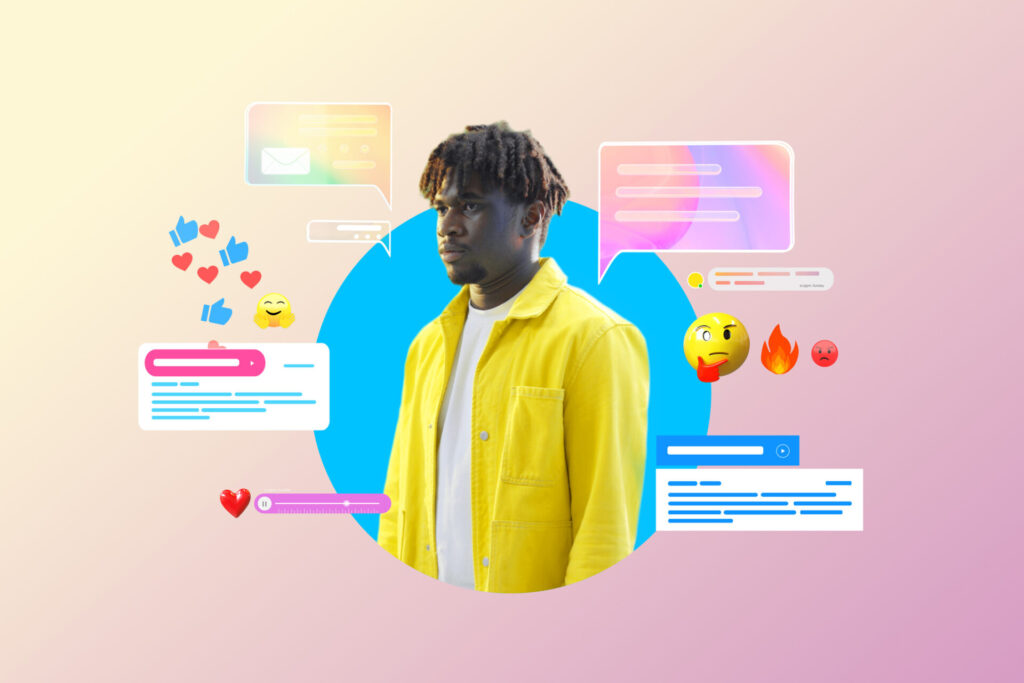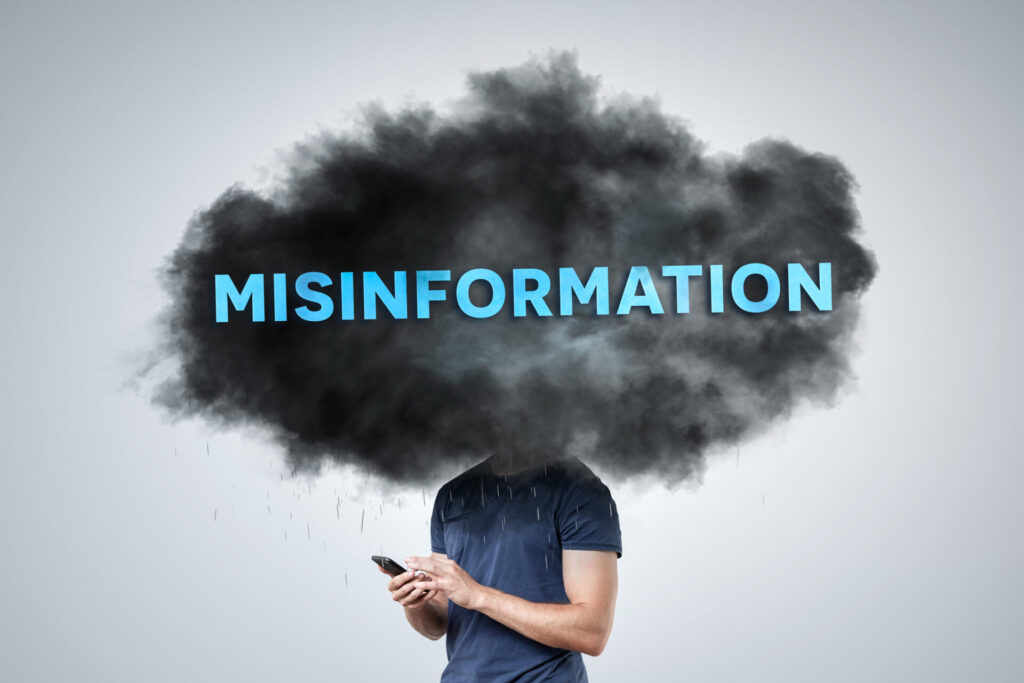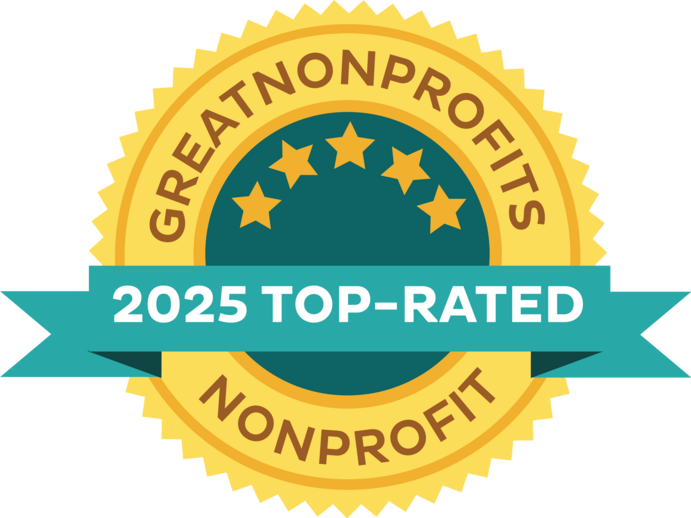Amid growing skin cancer rates in the U.S., falsehoods around sun protection run rampant online, spread by social media “stars” whose legions of devoted fans have transformed them into vectors of misinformation.
by Victoria Kopec and Sabrina Gaber Holland
And the damage is already evident, especially in younger populations. A 2024 survey by the American Academy of Dermatology found that 59 percent of Gen Z respondents believe myths around tanning, such as “tanning is healthy” and “a base tan will help prevent sunburn.” NOT true!
When dangerous social narratives like this start trending, it can be hard to separate fact from fiction. That’s where The Skin Cancer Foundation comes in. Our communications team snaps into action with no-nonsense, evidence-based educational content and social campaigns to stop the spread of misinformation.
A Sunscreen “Misinfodemic” 🧴🦠
Anti-sunscreen influencers sparked one of the most controversial social media trends, by sharing the false claim that sunscreen causes skin cancer. This baseless theory swiftly gained traction worldwide, fueled by high-profile social personalities and one television reality star.
The viral nature of this falsehood put dermatologists on high alert. That’s because misinformation that triggers emotions like fear or anger often trends widely. “If there is any sort of fear instilled in the message, it is going to spread,” explains Elizabeth K. Hale, MD, senior vice president of The Skin Cancer Foundation. And spread it did, while dermatologists, skin health influencers and medical organizations worked to control the damage.
At the time, a survey by the Orlando Health Cancer Institute found that 1 in 7 Americans under age 35 considered daily sunscreen use more harmful than unprotected sun exposure. This is especially troubling news, since melanoma is one of the most common cancers in young adults.
@SkinCancer.org Sets the Record Straight ⚠
Our first step was to publish a fact-filled blog post, featuring an interview with our Photobiology Committee member, Elizabeth Buzney, MD. A corresponding social post designed with attention-grabbing text sets the record straight: The sun causes skin cancer. Sunscreen helps prevents skin cancer. End of story.


This was followed by a Sunscreen Does NOT Cause Skin Cancer Instagram reel and blog post featuring the Foundation’s president, Deborah S. Sarnoff, MD, who clearly states the facts:
FACT: Unprotected exposure to UV radiation causes about 90 percent of nonmelanoma skin cancers and 86 percent of melanomas.
FACT: UV radiation is a proven human carcinogen.
FACT: Sunscreen, as part of a complete sun protection strategy, helps to prevent skin cancer.
“There is absolutely no evidence that sunscreen causes skin cancer,” Dr. Sarnoff explains. “This claim is false, it has no scientific basis and worse yet, it endangers public health.”
The effort proved successful; the Foundation’s debunking content had significant reach and amplification by dermfluencers and other credible social accounts in the skin health space.
The Problem with AI

The launch of Chat GPT and AI-generated answers on Google makes debunking strategies like this even more imperative. AI answers amplify popular social narratives (even if they are false) at the top of search engine results pages, enabling harmful misinformation to become even more persuasive and far-reaching.
Because the Foundation has such strong organic search authority, its blog posts and social content gained enough traction to attain the No. 1 position in AI answers. A big win all around.
Moving forward, the Foundation’s team has adopted a proactive strategy known as “prebunking,” or preemptive debunking. By sharing facts that counter misinformation before it takes hold, we aim to protect people from falling for it in the first place.
The Psychology of Misinformation

What explains the failure to distinguish between true and false information online? Quite often, misinformation is believed and spread by well-meaning individuals who unwittingly share catchy posts without validating them.
Like gossip, people either recognize misinformation as false or become a victim of it. Individuals who turn to social media for health information are particularly vulnerable.
And as more people view and share misinformation, doctors are seeing an increase in a phenomenon known as the illusory truth effect. “The repetition of false claims increases belief in those claims,” states an article by the American Psychology Association.
Fighting Misinformation Together 👩🔬💯
So, how can we work together to ensure that what you see and share online is factual and backed by science?
✅ 🤔 Check Credentials: First, always verify claims from influencers by checking reputable sources like The Skin Cancer Foundation, dermatologists and other medical professionals. Credible sources usually cite peer-reviewed research to back their statements.
👩 💻 👨 💻 Share Facts: Debunking is most successful when it includes solid facts that refute incorrect claims or trends.
😧 😡 Understand Emotions: Recognizing and ignoring emotional manipulation can help limit the spread of false information.
Over the years we’ve seen the good, the bad and the ugly impact of social trends. Our best advice? Don’t believe everything you see online, unless, of course, it’s coming from The Skin Cancer Foundation. And if you have questions about your skin, please talk to a dermatologist!
Related content:
The Influence of Influencers: Some Good News
Top Skin-Care & Sunscreen Trends to Like or Dislike
Social Media & Skin Cancer: The Benefits and Drawbacks for Patients Seeking Support
Victoria Kopec is senior director of digital strategy for The Skin Cancer Foundation. She works closely with digital communications strategist, Sabrina Gaber Holland to produce engaging educational content that resonates with the Foundation’s online audience of nearly 11 million people each year.





